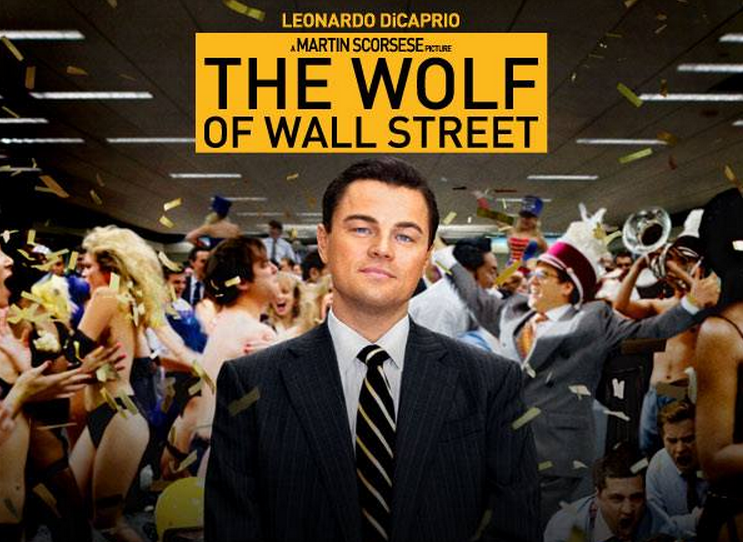Adapted by screenwriter Terence Winter from the personal memoir of Jordan Belfort, The Wolf of Wall Street indicates that when Belfort first attempted to establish himself on Wall Street, he did so in a more traditional and honest manner. However, Belfort’s twisted boss, Mark Hanna (Matthew McConaughey), quickly dismisses and distorts any notion of pursuing a morally just path to success and convinces Belfort that drugs, sex, and greed are a necessity to prosper on Wall Street. After being laid off during the market crash of 1987, Belfort takes Hanna’s advice to heart and starts his own “chop shop” brokerage in a converted garage, ripping off people by selling them unregulated penny stocks over the phone. Donnie Azoff (Jonah Hill) joins Belfort in this business venture early on and quickly becomes Belfort’s right hand man, as well as his wingman in their unending conquest of money, drugs, and prostitutes. By giving their business an old money name, Stratton Oakmont, Belfort and his employees gain the confidence of higher income investors, and through “pump and dump” operations, they find ways of turning enormous profits.
Ultimately, the presentation of their savage pursuit of money and power is where the film truly succeeds. In the earlier scene with Hanna, there is one point where he thumps a drum pattern on his chest while humming along. Eventually this becomes the anthem of Belfort’s firm and largely operates as a tribal, barbaric song for the ruthless pursuit of more material goods, revealing the central premise of the film that more is never enough. In addition, it provides depth to the animalistic nickname of “the Wolf” that Belfort is given. However, despite being a rather corrupt and menacing businessman, DiCaprio’s performance and witty narration as Belfort makes him an oddly likable scoundrel. Furthermore, the stylistic inclusion of narration naturally brings to mind Scorsese’s earlier films, Goodfellas and Casino. But whereas each of these earlier pieces made use of mild distancing through the narration, in The Wolf of Wall Street, we are always right in the thick of things, which yields a suffocating effect that quickens the pace of the film and enhances our understanding of the chaotic lifestyle that Belfort and his staff embraced.
Aided by excellent acting from DiCaprio, we truly see how warped Belfort’s mentality becomes from his pursuit of capitalist excess. In one scene, Belfort talks about a depressed employee who killed himself, but quickly moves onto another topic. In another scene, Belfort explains how the brokers classified prostitutes by cost and attractiveness, referring to them as “blue chips,” “NASDAQs,” and “pink sheets.” Nevertheless, through DiCaprio’s eccentric performance, we are largely blinded to how squalid the majority of The Wolf of Wall Street actually is.
Although Scorsese is now in his early 70s, The Wolf of Wall Street feels very much like a younger man’s film. While the three hour long film does tend to drag at moments, I still believe that the film’s intended depiction of capitalist addiction resounds quite strongly. By the film’s end, even though Belfort is removed from his position at Stratton Oakmont, he doesn’t seem to show any sort of remorse for his unethical actions. Instead, Belfort becomes a motivational speaker that seeks to sell the “American Dream.” Through this ending, we are forced to evaluate our own views on capitalism and really question greed in America. Overall, given the film’s strong acting, excellent directing, and relentless storytelling, it seems quite evident that Scorsese is still capable of producing great movies, furthering his legacy as one of America’s finest directors of all time.


 RSS Feed
RSS Feed
